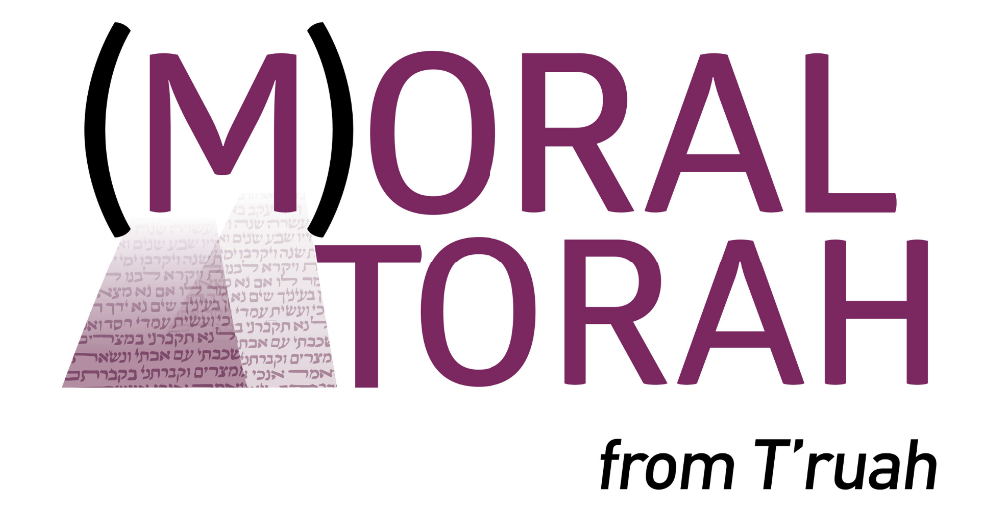These 7 divrei Torah, one for each of the 7 weeks of the Omer that lead up to Shavuot, span the breadth of the entire Torah, from Genesis to Deuteronomy, and come from 7 exceptional T’ruah rabbis who lend their voices to the call for a more just and moral world.
(M)oral Torah is T’ruah’s weekly d’var Torah series from rabbis and cantors on issues like democracy, immigration, race/racism, Israel/Palestine, and other issues central to the work of building a more just world. To receive more incredible divrei Torah like these, sign up for (M)oral Torah here! We publish a new piece each week, sent out over email and published on our website.
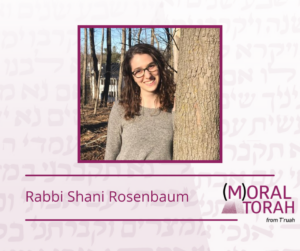 Naso, “The Art of Burden Bearing”
Naso, “The Art of Burden Bearing”
Rabbi Shani Rosenbaum reminds us of the value of carrying, covering, and placing down burdens in the work to create a more just world.
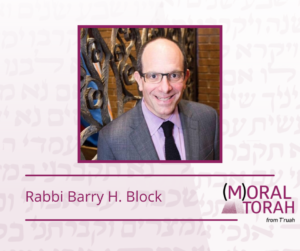 Re’eh, “Dangerous Idols in Ancient Israel and Contemporary America”
Re’eh, “Dangerous Idols in Ancient Israel and Contemporary America”
Rabbi Barry Block draws a comparison between the idols Israelites were commanded to destroy upon reaching Canaan and the statues and idols remaining of Confederate racism and terrorism that remain in place today.
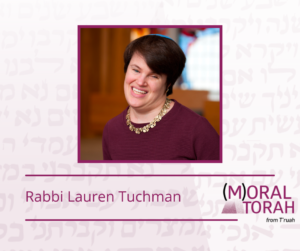 Yom Kippur, “Creating Sacred Communities for the Whole of Israel”
Yom Kippur, “Creating Sacred Communities for the Whole of Israel”
Rabbi Lauren Tuchman reminds us that the Yom Kippur liturgy tells us to pray with everyone in the community, and to do so, we must understand the access needs of people of all abilities.
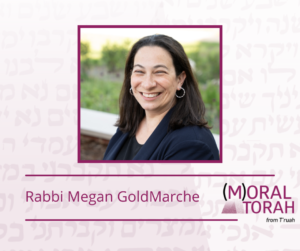 Noach, “Closing the Doors of our Ark to Immigrants”
Noach, “Closing the Doors of our Ark to Immigrants”
Rabbi Megan GoldMarche challenges us to try to understand the choices Noach makes in the parshah, but also to, unlike him, speak up and dissent when immoral policies are enacted.
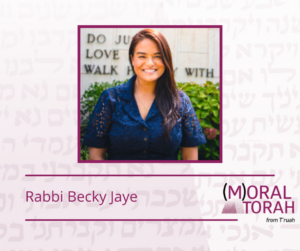 Miketz, “The Power of Dreams and Our Power to Create Prophecy”
Miketz, “The Power of Dreams and Our Power to Create Prophecy”
Rabbi Becky Jaye reminds us that only by dreaming and imagining a world beyond today’s seemingly insurmountable injustices can we discover the tools we need to reach it.
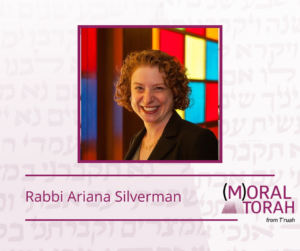 Yitro, “Finding the Roots of Our Neighbor’s Home”
Yitro, “Finding the Roots of Our Neighbor’s Home”
Rabbi Ariana Silverman pushes us to think seriously about the commandment not to covet and how violation of that commandments leads to so much of the machinery that underlies the occupation in the Palestinian territories.
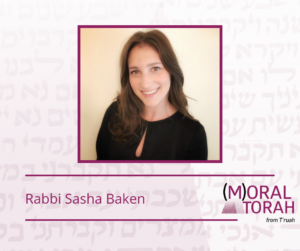 Emor, “Sacred Times: A Moment to Reflect on AAPI Allyship”
Emor, “Sacred Times: A Moment to Reflect on AAPI Allyship”
Rabbi Sasha Baken suggests white Jews use the intersection of the counting of the Omer and Asian American and Pacific Islander (AAPI) Heritage Month as an opportunity to reflect on our biases and solidify our commitment to being allies with our Asian Jewish siblings.

